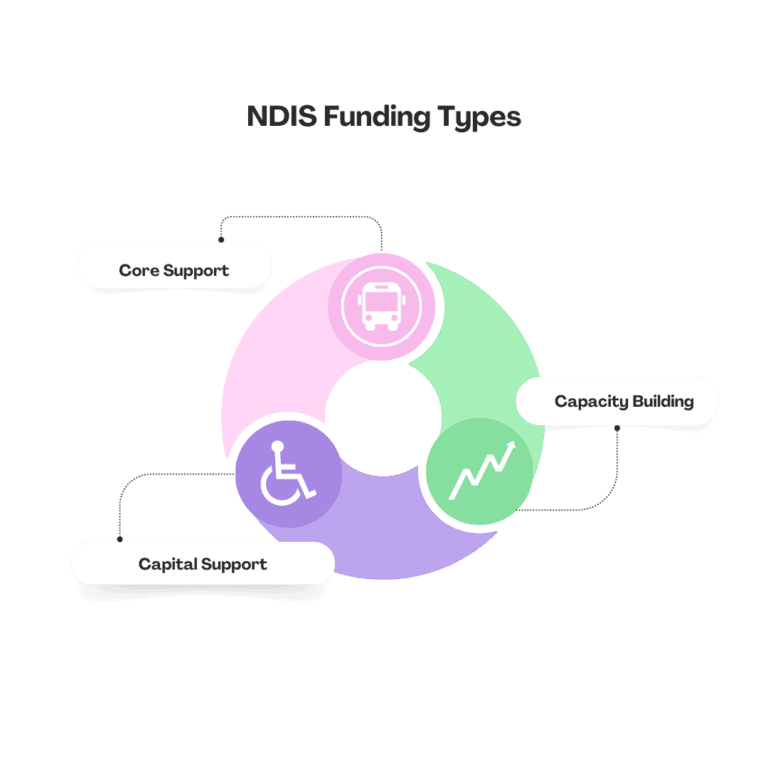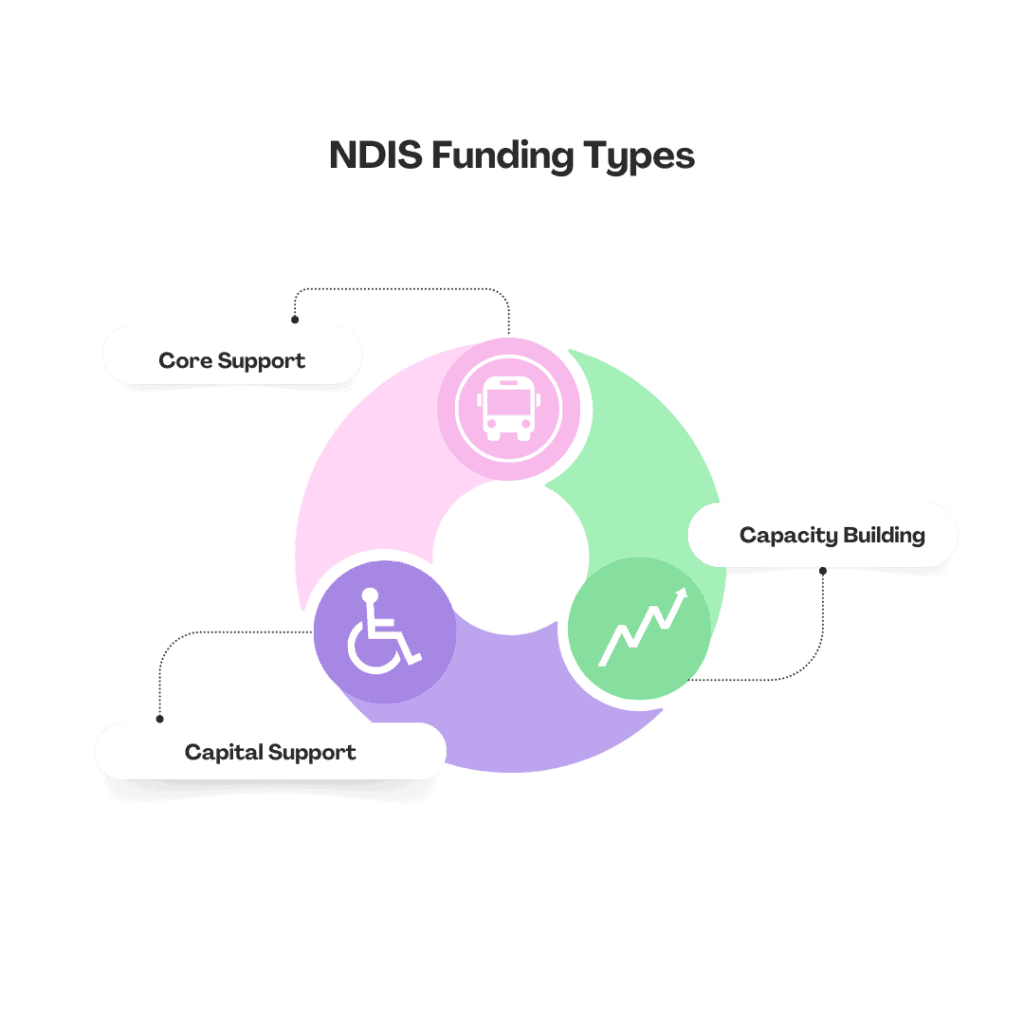
Core
Supports
Capacity Building
Capital Supports
What Do These Terms Mean?
Core Supports:
Core Supports are the most common type of supports. This NDIS funding category is used to assist you with a wide range of supports within your daily life. If you’re looking at your personal NDIS Plan, you may see some support categories such as
- Consumables
- Transport
- Assistance with Daily Life (Self-Care)
- Assistance with Social, Economic and Community Participation. (Community Access)
It’s important to note that Core NDIS funding available is flexible within the Core Funding Category.
What this means that if you’re low on consumables however you have funds available within Daily Life, you are able to utilise the funds from your Daily Life budget in order to acquire your disability specific consumable needs by claiming it from the consumables area.
For more information in regards to Core NDIS funding, give us a call or send an email and we will be happy to answer any queries you may have.
Capacity Building Supports:
Capacity Building Supports are focused around you as an individual. Like all categories these are specifically to “Build Capacity” for the individual by funding a team of allied health professionals and others to support you along your journey. They will assist you by building your independence with tailored plans to meet your needs.
You may find some of these Capacity Building Supports within your Capacity Building Budget:
- Health and Wellbeing (Allied Health Professionals)
- Choice and Control (Plan Management & Training in Planning)
- Support Coordination (Level 1: Plan Assistant, Level 2: Plan Coordinator)
- Social and Community Participation (Life Skill Development)
- Employment (Finding and Keeping a Job)
- Improved Life Choices (Plan Management)
These are some, but not all of the capacity building supports that may be allocated to you.
If you have a question in regards to your capacity building budget or any further information about Capacity Building Supports, please feel free to reach out via call or email.
Capital Supports:
Capital Supports are seen as an investment by the NDIA. They are typically expensive items that are required for the individual. Some equipment examples would be; an Electric Wheelchair, Speciality made beds or a sit-stand recliner (So long as these meet your disability needs)
The most common NDIS Funding seen within a Capital Budget are:
- Assistive Technologies (Low Cost, Medium Cost, High Cost)
Low Cost: These will show as Core Funding on your NDIS Plan
Equipment that is under $1,500, Low Cost Assistive Technologies is readily available and easy to set up (No Approval Required)Examples: Walking Stick, Walking Frame, Shower Chairs, Toilet Frames, Noise Cancelling Headphones, Weighted Blankets, HandyBars, Continence Aids & Equipment Based Subscriptions.
Medium Cost: These are specifically Capital Budget (Approval Required)
Equipment that costs between $1,500 and $15,000. These items are a bit harder to obtain and will need supporting evidence from an Allied Health Professional as to why you require the equipment before the NDIS can assess the criteria.
Examples: Electric Wheelchairs, Standing Hoists, Hi-Lo Beds, Sit-Stand Recliners, Mobility Scooters, Meal Preparation Devices (Budget Thermomix), Minor Vehicle ModificationsHigh Cost: These are part of the Capital Budget and require a quote from the provider
Equipment that exceeds $15,000. These are complex need items that are custom made to your specific individual need. The individual will need to acquire a quote from the provider and quite likely supporting documentation in order for the NDIS to assess and adjust your budget appropriately
Examples: Custom-Made Wheelchairs, Prosthetics, Ventilators, Major Vehicle Modifications - Home Modifications & Specialist Disability Accommodation
Home Modifications are available for individuals who wish to stay in their own homes however there are elements that make certain parts of the home inaccessible. Home Modifications allow for changes to occur to the structures and fittings of a property as well as installation of equipment to allow the participant to live safely at home.Specialist Disability Accommodation is a specialist housing solution for individuals with high needs, described by the NDIA as “Extreme Functional Impairment” and/or very high support needs.
The costs involved that most providers charge are as followed:
- 25% of the Disability Support Pension + 100% of the Commonwealth Rent Assistance (Reasonable Rent Contribution)
- The Specialist Disability Accommodation Funding (Standard Claiming is Monthly, can only be charged for what has been used)
- Electricity and other day to day living costs



